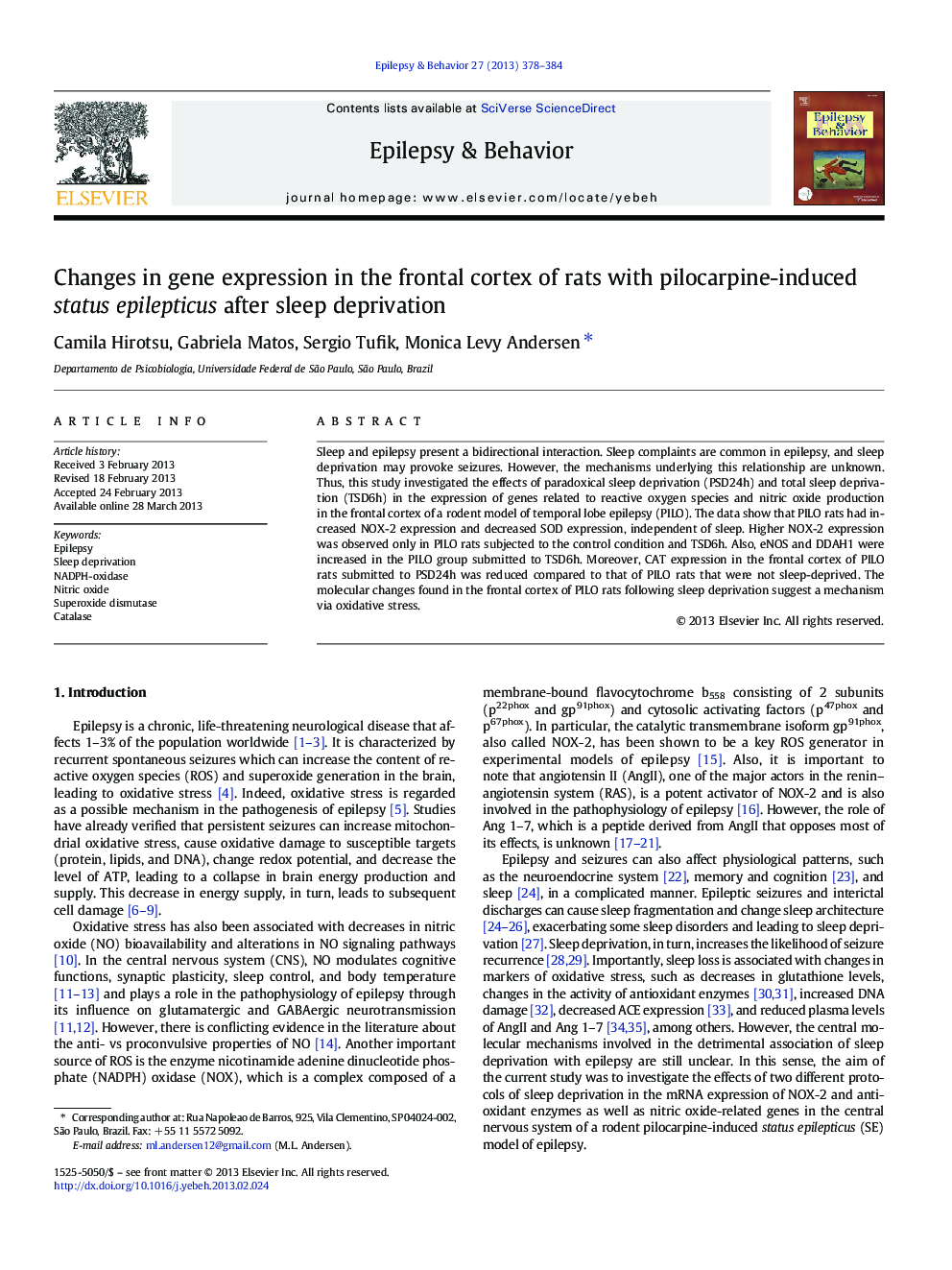| Article ID | Journal | Published Year | Pages | File Type |
|---|---|---|---|---|
| 6012988 | Epilepsy & Behavior | 2013 | 7 Pages |
Abstract
Sleep and epilepsy present a bidirectional interaction. Sleep complaints are common in epilepsy, and sleep deprivation may provoke seizures. However, the mechanisms underlying this relationship are unknown. Thus, this study investigated the effects of paradoxical sleep deprivation (PSD24h) and total sleep deprivation (TSD6h) in the expression of genes related to reactive oxygen species and nitric oxide production in the frontal cortex of a rodent model of temporal lobe epilepsy (PILO). The data show that PILO rats had increased NOX-2 expression and decreased SOD expression, independent of sleep. Higher NOX-2 expression was observed only in PILO rats subjected to the control condition and TSD6h. Also, eNOS and DDAH1 were increased in the PILO group submitted to TSD6h. Moreover, CAT expression in the frontal cortex of PILO rats submitted to PSD24h was reduced compared to that of PILO rats that were not sleep-deprived. The molecular changes found in the frontal cortex of PILO rats following sleep deprivation suggest a mechanism via oxidative stress.
Related Topics
Life Sciences
Neuroscience
Behavioral Neuroscience
Authors
Camila Hirotsu, Gabriela Matos, Sergio Tufik, Monica Levy Andersen,
